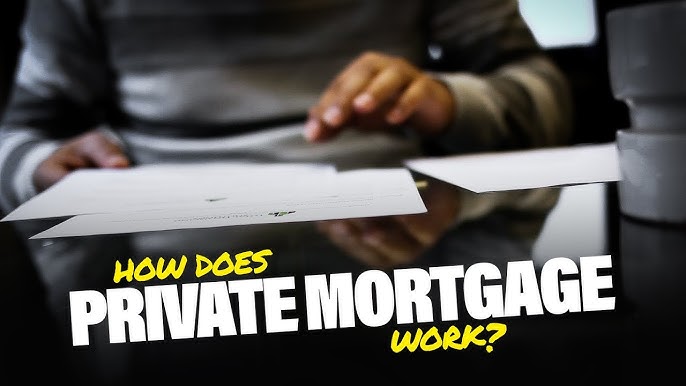How private mortgage lenders savannah ga assist first-time homebuyers in the current housing market
How It Functions: A Comprehensive Guide to Mortgage Lending for First-Time Customers
Maneuvering the globe of mortgage lending can be frightening for novice purchasers. Recognizing the basic components like principal, rate of interest, and deposits is important. Furthermore, identifying the various types of mortgage and the application process can significantly impact one's experience. By checking out key elements that affect rates of interest, customers may discover beneficial understandings. What else should they think about prior to making such a considerable monetary dedication?
Understanding Mortgage Basics
When novice customers get in the domain of homeownership, comprehending mortgage basics becomes crucial for making educated choices. A home loan is fundamentally a finance safeguarded by the property being purchased, enabling people to buy a home without paying the complete rate upfront. Purchasers need to understand vital elements, including principal, passion, tax obligations, and insurance coverage, usually summarized as PITI. The principal is the quantity borrowed, while interest is the cost of loaning that quantity, revealed as a percentage. Tax obligations and insurance policy are added expenses that can substantially impact regular monthly payments. Purchasers need to also take into consideration the lending term, generally 15 or 30 years, which affects settlement amounts and overall rate of interest paid. Comprehending credit score scores is crucial, as they affect lending qualification and rates of interest. Comprehending these basic principles equips newbie buyers to browse the mortgage landscape with confidence and choose that line up with their financial goals.
Kinds Of Mortgage Loan
When considering mortgage alternatives, newbie customers often experience two main kinds: fixed-rate and variable-rate mortgages. Fixed-rate mortgages offer security with regular repayments over the lending's term, while variable-rate mortgages can supply reduced first prices that might change gradually. Understanding these differences is vital for making an educated decision.
Fixed-Rate Home loans
Fixed-rate home loans supply stability and predictability for new property buyers steering the intricacies of home funding. With a fixed-rate mortgage, the rate of interest stays consistent throughout the funding term, usually ranging from 15 to three decades. This regular rate permits customers to plan their budget plans successfully, recognizing that their monthly settlements will not rise and fall. Newbie customers profit from this structure as it gets rid of unpredictability in long-term monetary dedications. In addition, fixed-rate home mortgages commonly include lower first prices compared to adjustable-rate choices, making them an appealing choice for those looking to develop home equity with time. In general, fixed-rate mortgages provide an uncomplicated path to homeownership, perfect for people looking for lasting financial protection.
Adjustable-Rate Mortgages
For new buyers looking for adaptability, variable-rate mortgages (ARMs) can provide an attractive option to fixed-rate loans. ARMs usually supply lower preliminary rate of interest, making monthly repayments extra cost effective in the very early years. However, these prices vary after a first set period, which can result in increased settlements in time. Borrowers need to comprehend the index and margin that establish future rate changes. Frequently, ARMs have modification periods of one, 3, or five years, with regular caps to limit just how much prices can raise at each modification. While ARMs can be beneficial for those preparing to sell or refinance prior to the price adjusts, they also lug risks if market conditions transform significantly. Complete study is important for educated decision-making.
The Mortgage Application Process

Trick Variables Influencing Rate Of Interest

Down Settlements and Closing Expenses
Comprehending down repayments and shutting expenses is crucial for first-time property buyers, as these expenditures substantially influence the total cost of a home mortgage. A deposit is the initial amount paid towards the home's acquisition cost, generally revealed as a percentage. It a knockout post can vary from as low as 3% to 20% or even more, relying on the lending type and lending institution demands. A larger deposit can minimize month-to-month mortgage settlements and remove personal mortgage insurance coverage (PMI), which safeguards loan providers in instance of default.Closing expenses, on the other hand, include numerous fees incurred throughout the home-buying process. These might consist of loan origination costs, evaluation costs, title insurance policy, and lawyer charges, generally completing 2% to 5% of the home's acquisition price. First-time buyers should allocate both deposits and closing expenses to ensure they can safeguard their mortgage and efficiently navigate the home-buying process.
Tips for First-Time Homebuyers
What crucial tips can first-time homebuyers comply with to navigate the commonly difficult procedure of acquiring a home? Initially, establishing a sensible spending plan is important. Buyers should assess their financial circumstance, including income, expenses, and prospective mortgage repayments. Next off, obtaining pre-approval for a home mortgage can give clearness on what one can afford and reinforce their setting when making an offer.Researching areas is just as important; purchasers ought to consider factors such as services, colleges, and future developments. Additionally, it is recommended to deal with a certified real estate representative who can use important understandings and guidance throughout the purchasing process.Home assessments must not be forgotten, as they can uncover surprise issues that might impact long-term complete satisfaction. Finally, buyers must remain client and adaptable, comprehending that finding the ideal home may require time. By adhering to these read more tips, new buyers can come close to the marketplace with self-confidence and understanding.
Frequently Asked Questions
What Files Are Required for Mortgage Pre-Approval?
For mortgage pre-approval, people normally require to provide revenue confirmation, work history, credit rating records, tax returns, bank declarations, and information of any kind of financial debts (Private Mortgage Lenders Savannah GA). These papers help loan providers evaluate financial ability and identify lending eligibility
Can I Obtain a Home Mortgage With Bad Credit?

Lots of loan providers consider candidates with negative credit score, though terms might differ. Higher rates of interest or larger down repayments can be required. Checking out choices with specialized lending institutions or federal government programs can likewise improve possibilities for authorization.
The length of time Does the Mortgage Approval Process Take?
The mortgage approval process normally takes in between 30 to 45 days. Aspects affecting this timeline consist of the loan provider's performance, the consumer's monetary documents, and the complexity of the car loan you could try here application. Hold-ups might happen as a result of additional requirements.
What Takes place if I Miss a Mortgage Settlement?
If a mortgage repayment is missed, late costs may be sustained, and credit report can suffer. Extended non-payment might cause foreclosure procedures, prompting the loan provider to reclaim the property after a series of cautions.
Can I Re-finance My Mortgage Later?
Re-financing a home mortgage later on is frequently possible, enabling home owners to adjust their car loan terms, rate of interest, or monthly payments. Qualification depends on credit rating ratings, current market conditions, and the existing mortgage's terms.